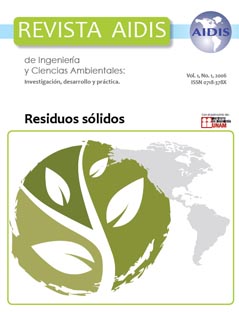Gestión local de residuos sólidos: El sistema nacional de certificación ambiental de establecimientos educacionales una estrategia de integración escuela comunidad
Main Article Content
Abstract
Both in Chile and in other countries, managing municipal solid waste (MSW) is a difficult problem, due to the various variables explaining it. Several background data suggest that the possibilities of solving the problem are associated to the education and environmental training of the population, as well as to an increase in their citizen participation. Having education intervene in these variables would be a proper way to proactively address the problem and minimize the present negative environmental impact brought about by inefficient or non existent managing plans. In our country the National System of Environmental Certification for Educational Entities (SNCAE) has been created, which is a proposal by the National Environment Committee (CONAMA), the Ministry of Education (MINEDUC), UNESCO, the National Forestry Corporation (CONAF), the Sustainable Development Council, and the City Councils Association. It is a way of accepting the challenge of promoting a cultural change towards sustainability. SNCAE is a framework for action from which strategies can be derived, such that integration and participation of the local community in environmental management of MSW are promoted from school on. Universidad de La Serena, in the 4th Region of Chile, and the Regional Council of Environmental Certification, have signed a collaboration agreement. Under that agreement, the Interdisciplinary Program of Environment and Development Education (PRIEMAD), belonging to the University, has developed a set of actions so that educational entities both in rural and urban communities in the 4th Region successfully participate in the SNCAE. Training Courses for teachers in directing positions and instructors, courses on Community Environmental Education, and technical assistance for schools have been provided. A new methodology has been developed to include topics related to both MSW and natural and socio cultural resources in the curriculum. This is complemented with procedures for including environmental standards in the fields of School Management and Environmental Relationships. In the latter, both the acquisition of knowledge and the development of positive attitudes and abilities for MSW management are promoted. The knowledge and experience that derives from this can be extended to other realities, both urban and rural, in Chile or other countries.
Article Details
How to Cite
[1]
Brown González, G. 2009. Gestión local de residuos sólidos: El sistema nacional de certificación ambiental de establecimientos educacionales una estrategia de integración escuela comunidad. Revista AIDIS de ingeniería y ciencias ambientales: Investigación, desarrollo y práctica. 1, 1 (Nov. 2009).
